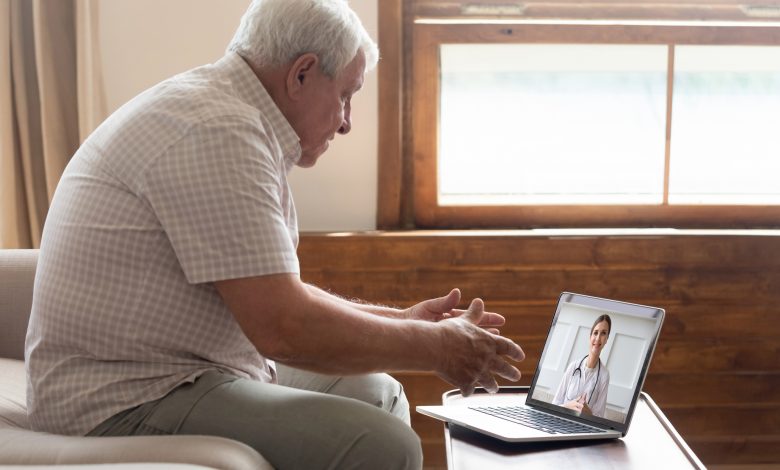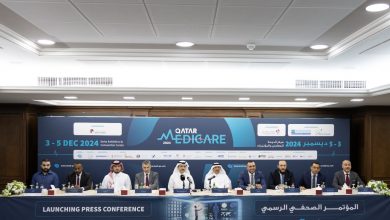
HMC provides advice to protect the elderly from risks of coronavirus
حمد الطبية تقدّم نصائح لوقاية كبار السن من مخاطر فيروس كورونا
The Peninsula
As the worldwide number for those infected with COVID-19 continues to rise, friends and family members need to support the older adults in their life, said Dr. Hanadi Al Hamad, Chairperson of Geriatrics and Long Term Care at Hamad Medical Corporation (HMC), and the National Health Strategy Lead for Healthy Aging.
“People who are older or who have underlying medical conditions are at risk for the most severe consequences, should they contract COVID-19. The latest data from China indicates the great majority of reported cases there were in older people. It may seem extreme, but older adults, especially those who already have health challenges, are being urged to stay at home as much as possible,” said Dr. Al Hamad.
“For those most at risk for severe infection, it is important that we do everything we can to reduce their risk of exposure to the virus. Simple things like frequent hand-washing, avoiding crowds, limiting time in public, trying to keep a distance from others, and staying at home if we are sick, can make a big difference in reducing our risk of becoming infected, and of infecting others – including the older adults in our life,” added Dr. Al Hamad.
Dr. Al Hamad said the term ‘social distancing’ is a new phrase that describes most of these behaviours and is typically the opposite of guidance given for older patients. She says the overall health benefits of social engagement for older adults are well documented but that these are extraordinary times.
“Numerous studies have found that remaining socially active as you age reduces the risk of dementia and various other health conditions. Geriatricians generally promote the benefits of social engagement and activities that prevent isolation, but these are unprecedented times. It is essential that we do everything possible to protect the health of our most vulnerable populations, and this can include staying away – especially if we are sick or have had contact with someone who is ill,” said Dr. Al Hamad.
Dr. Al Hamad said that while it is essential to limit the risk of coronavirus infection among older adults, it is also important that we don’t isolate our elderly. She says technology can help prevent social isolation.
“If the older adult in your life isn’t already online, help them to learn a new technology. There are dozens of online options that can be used to talk to family and friends. If your loved one isn’t tech-savvy, make it part of your routine to check in a few times each day by phone. Social distancing does not mean social isolation, and even a potentially deadly virus should not force us to be alone. Now, more than ever, people need to find smart ways to stay connected,” said Dr. Al Hamad.
Dr. Al Hamad said that it is also important for families who have an older adult in their life to plan ahead, should their loved one become sick. She says families and caregivers should be familiar with what medications their loved one is taking and monitor their food and medical supplies. She said it is also important for family members to watch for the symptoms and emergency warning signs of COVID-19.
“In adults, emergency warning signs can include fever, cough, difficulty breathing or shortness of breath, persistent pain or pressure in the chest, new confusion, and bluish lips or face. Older adults may be less likely than younger individuals to run a fever when they have an infection so if the older adult in your life has other symptoms of an infection or are feeling poorly, it is better to get checked out,” said Dr. Al Hamad.
The Ministry of Public Health has established a dedicated website (www.moph.gov.qa) to provide the public with updates on the current situation as well as information on how to protect themselves and others from COVID-19. A hotline (16000), which is available 24-hours a day to answer COVID-19 related queries, and an educational social media campaign have also been launched, with the MoPH, HMC, and Primary Health Care Corporation (PHCC) sharing infographics and videos through their social media channels.
الدوحة – الراية:
شددت مؤسسة حمد الطبية على أهمية استمرار تقديم الدعم لكبار السن عن طريق أفراد الأسرة والأصدقاء في ظل تفشي فيروس كورونا (كوفيد-19) في مختلف أنحاء العالم خاصة مع الدعوات الصحية التي تنادي ببقاء كبار السن في المنزل خاصة ممن يعانون منهم من مشاكل صحية مزمنة.
ودعت الدكتورة هنادي الحمد استشار أول ورئيس قسم أمراض الشيخوخة والرعاية المطولة في مؤسسة حمد والقيادية في الاستراتيجية الوطنية للصحة فيما يتعلق برعاية الشيخوخة، إلى بذل كل الجهود الممكنة للتقليل من مخاطر تعرض كبار السن لعدوى الفيروس وذلك من خلال اتباع بعض الاحتياطات البسيطة التي تساعد في وقايتهم من المرض مثل غسل اليدين باستمرار، وتجنب الأماكن المزدحمة، والتقليل من البقاء في الأماكن العامة، والتقليل من مخالطة الآخرين، والبقاء في المنزل في حالة المرض.
وأشارت إلى أنه بالرغم من أن خبراء طب الشيخوخة ينصحون كبار السن بمخالطة الآخرين والمحافظة على مستوى عال من النشاط الاجتماعي لما لذلك من فوائد جمة في وقاية هذه الفئة من الإصابة بالخرف وغيره من الأمراض والاضطرابات المرتبطة بالتقدم في السن، إلا أن ذلك لا يبدو مناسبا في هذه الفترة، لذلك من الضروري العمل بكل جهد على حماية صحة هذه الفئة من المجتمع والتي تعتبر أكثر عرضة للأمراض من غيرها، ومن أهم ذلك البقاء بمعزل عنهم إذا أصاب الشخص العادي المرض أو خالط أشخاصا مرضى. وأكدت أن التقليل من فرص تعرض كبار السن للعدوى بفيروس كورونا على قدر كبير من الأهمية، ولكن من المهم أيضا عدم جعلهم رهينة العزلة الاجتماعية حيث هيأت التكنولوجيا الحديثة البيئة والحلول المناسبة للتغلب على هذه المسألة.



